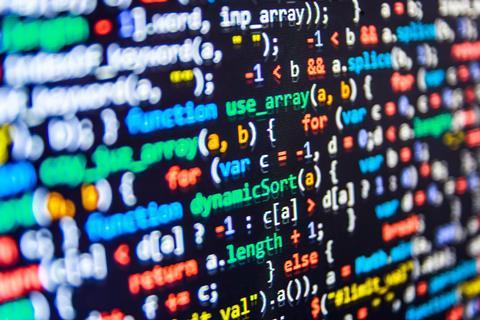How the University of Liverpool is training students to meet the demands of industry

As a chemistry lecturer, my job is to take cohorts of students who have recently passed their A-levels and turn them into employable graduates. In three years.
On a generic chemistry degree, in addition to the core content, students learn how to process data, present, write reports, operate spectrometers, model molecules and navigate their virtual learning environment. This is enough to get a degree, but is it enough for employers? Not these days.
It struck me how rapidly the world has changed for new graduates when the University of Liverpool opened the doors to the Materials Innovation Factory. This multimillion-pound collaborative venture where research meets industry does not take the shape of traditional synthetic laboratories. Its vast laboratory spaces are instead filled with robots and ‘shiny-ometers’.
‘What are we teaching our students that equips them to operate these machines?’ I wondered. The answer is often ‘very little’. Students might understand the fundamentals of the chemistry, which is of course important, but we are not teaching them all of the skills to deal with challenges like these.
And it’s not just research and industry that demands modern skills. What if students don’t want to be chemists? Many veer off into accountancy or managerial positions. While the number of graduate jobs remains relatively static, the number of jobs requiring some knowledge of computer coding is increasing.
How do we give our graduates the edge?
Students need exposure to coding on all degree programmes, particularly chemistry, not only to meet expectations of employers but to guarantee the necessary skills for their career of choice. Coding is a new form of literacy. It implements and reinforces other vital skills, such as critical thinking, problem-solving, logical thinking and teamwork.
Coding is taught at primary school and, in the not too distant future, our incoming A-level students will have at least some basic coding knowledge. Degree programmes desperately need to respond to the skills of their incoming cohorts. Take the skills and build on them; use them or lose them.
In an increasingly digital world, degree programmes need to respond to the rapidly changing industrial and research landscape
For current cohorts, learning coding from scratch is often an overwhelming prospect. At the University of Liverpool, a group of science and engineering researchers launched a series of events, called Hives, designed to eliminate the fear of learning to code. Unlike most traditional taught courses at the university, Hives are highly social. The Hive learning model empowers those who know the basics of coding to pass their knowledge to those who are completely new to it.
This initiative is helping upskill students and researchers. Those attending Hives come from more than 20 disciplines from across the university. While essential for chemists, the demand for coding skills is clearly high across the board, from astrophysics to architecture.
In an increasingly digital world, degree programmes need to respond to the rapidly changing industrial and research landscape. Allow students to learn code, whether it be through a core module, key taught skills or a Hive.
For chemists in particular, coding is an incredibly useful skill. Chemists at the University of Liverpool use their coding skills for all sorts of things:
- ‘Coding allows us to predict useful combinations of elements that we can synthesise into products, greatly accelerating the discovery of new materials.’ Chris Collins, postdoctoral research associate in materials chemistry.
- ‘We write code for a broad range of things – from simple toolkit scripts for processing and reformatting data, to more complex structure analysis problems, like looking for patterns in many datasets or structures, and implementing algorithms for determining structures from powder diffraction data.’ Sam Chong, lecturer in the Materials Innovation Factory and department of chemistry.
- ‘Coding is used for mapping composition of thin film surfaces based on XPS data.’ Fiona McBride, postdoctoral researcher in surface science.
- ’Python code is being used to develop high throughput spectroscopic elucidation and for structure prediction.’ Rob Treharne, lecturer and learning technologist in the school of life sciences.
Cate Cropper is a chemistry lecturer at the Central Teaching Laboratories at the University of Liverpool









No comments yet